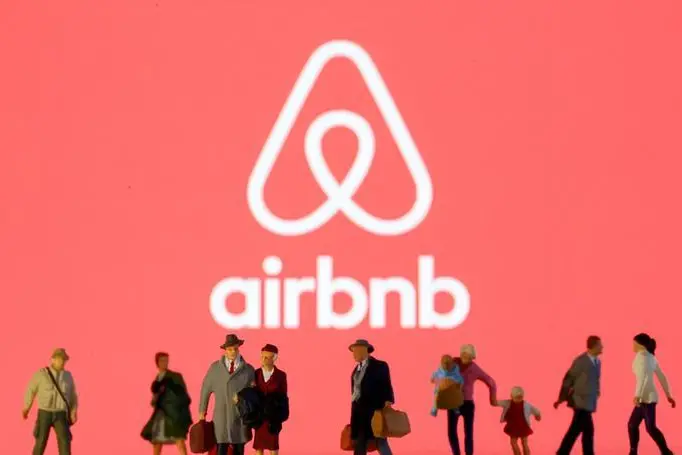PHOTO
(The author is a Reuters Breakingviews columnist. The opinions expressed are his own.)
NEW YORK - Travel may not be back to 2019 levels, but Airbnb is. The $91 billion online vacation-booking platform regained pre-pandemic levels of revenue in the second quarter as well as turning an adjusted EBITDA profit, something previously only associated with the summer. Airbnb looks a lot like it did two years ago, only leaner.
People booked three times as many nights and experiences with Airbnb’s hosts as in the second quarter last year. The total of roughly 83 million was on par with April to June of 2019. Because of higher average rates, Airbnb’s revenue increased more sharply, up around 300% on last year and 10% on two years ago at $1.3 billion.
Just as importantly for investors, the reported net loss for the quarter was a modest $68 million, a massive improvement both on last year’s showing and the nearly $300 million shortfall in the second quarter of 2019. For all the damage it has done, Airbnb boss Brian Chesky has Covid-19 to thank for that. He had no choice last year but to drop a raft of side projects, refocus on the core business and lay off 1,900 employees.
That made for a more persuasive initial public offering in December, and now it means the company is again throwing off cash. In contrast at $90 billion Booking Holdings, owner of Priceline and Kayak, the $2.2 billion second-quarter top line, which also recovered strongly from a year ago, was only slightly more than half what it made in 2019.
With more than $7 billion of cash, Airbnb looks fit enough to absorb the latest travel-industry hit from the extra-infectious Delta variant of the coronavirus. And there ought to be growth still in store: U.S. transport security checkpoints are only around three-quarters as busy as in 2019. More travel and less baggage make for a happy combination.
CONTEXT NEWS
- Airbnb on Aug. 12 reported second-quarter revenue of $1.3 billion, up nearly 300% on the same period in 2020 and a 10% increase from the second quarter of 2019. The net loss for the period was $68 million, compared with a loss of $576 million in the same three months of 2020 and $297 million in 2019.
(The author is a Reuters Breakingviews columnist. The opinions expressed are his own.)
(Editing by John Foley and Amanda Gomez) ((For previous columns by the author, Reuters customers can click on BEALES/ SIGN UP FOR BREAKINGVIEWS EMAIL ALERTS http://bit.ly/BVsubscribe | richard.beales@thomsonreuters.com; Reuters Messaging: richard.beales.thomsonreuters.com@reuters.net))





















